Drawing Down the Moon (27 page)
Read Drawing Down the Moon Online
Authors: Margot Adler

Wicca priestess Elspeth consecrates the salt.
(Photo by Govan)
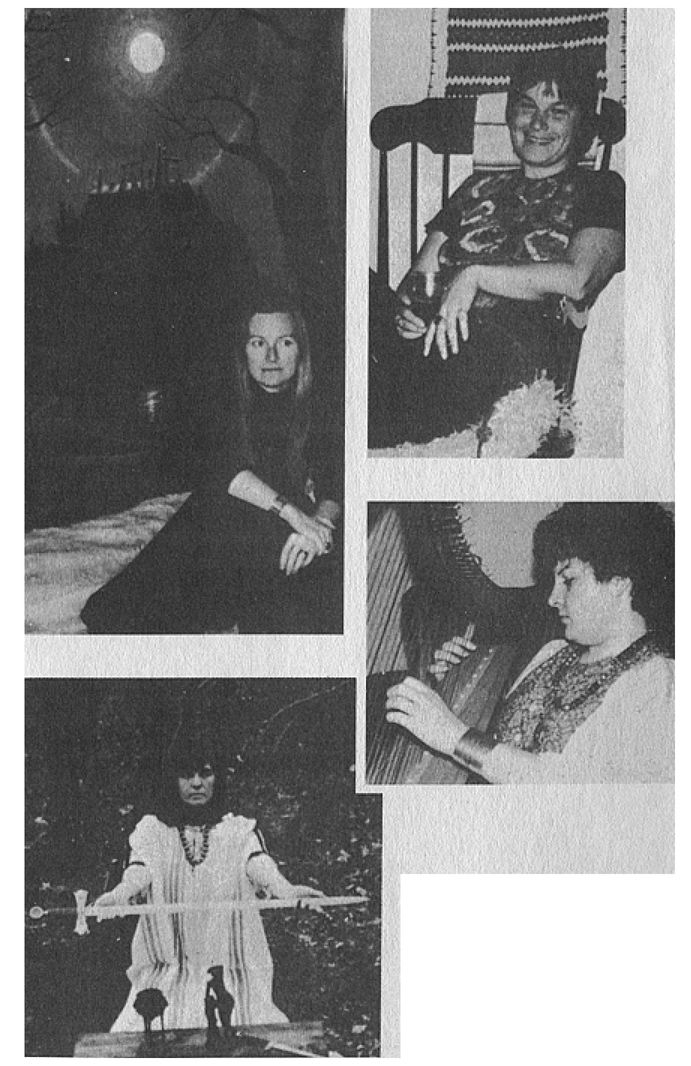
Four Wicca priestesses (clockwise from upper left): Moria, Z Budapest, Sharon Devlin, and Theos.
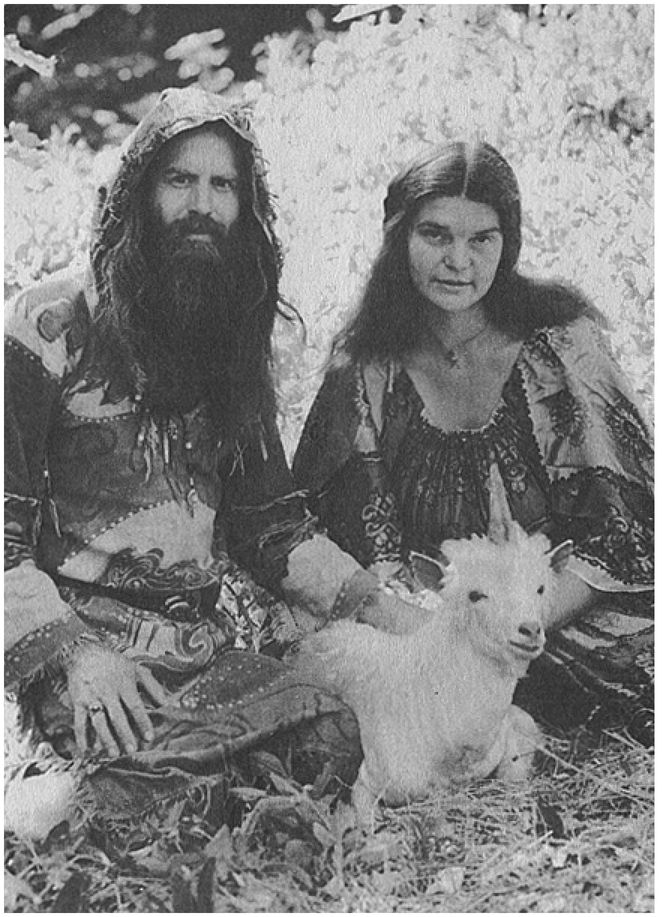
Oberon and Morning Glory Zell-Ravenheart with one of their unicorns.
(Photo courtesy of The Living Unicorn)
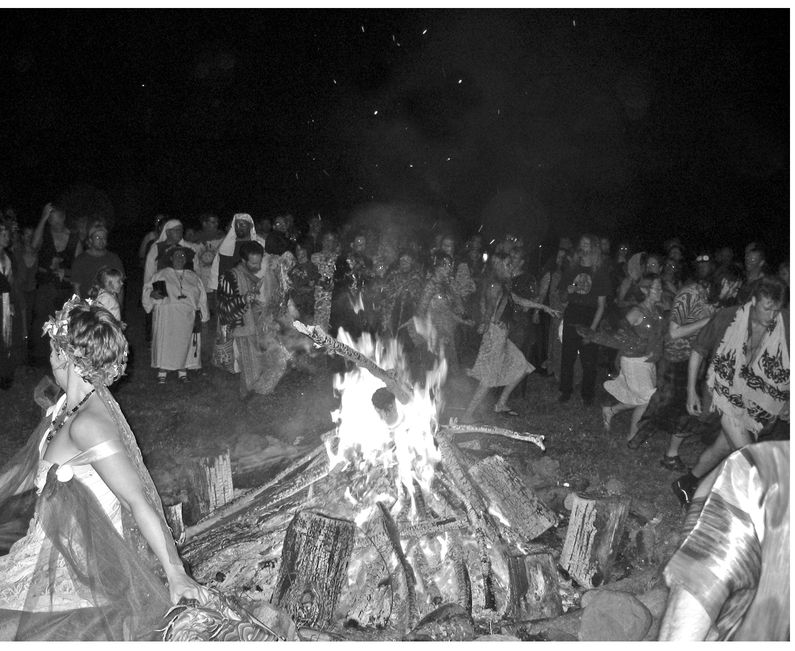
Dancing around the sacred fire in the Opening Ritual at the 2005 Pagan Spirit Gathering in Ohio.
(Photo by Selena Fox, courtesy of Circle Sanctuary)
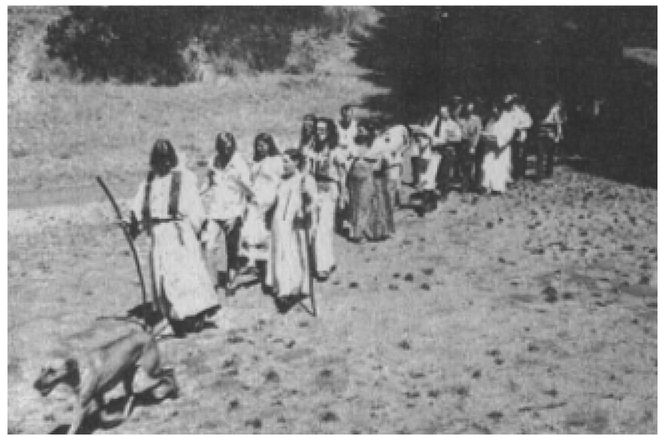
A Druid procession in Californiaâthe New Reformed Druids of North America.
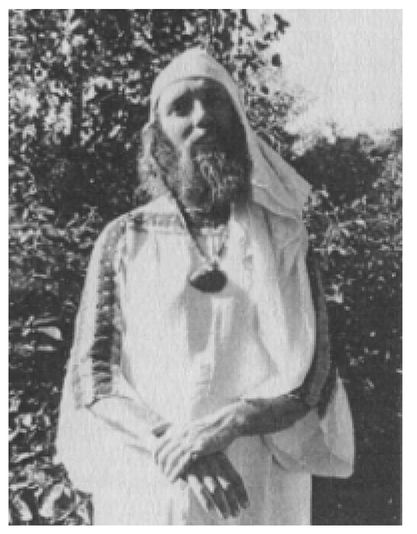
The late Gwydion Pendderwen in ceremonial robes.
(Photo by Selena Fox)
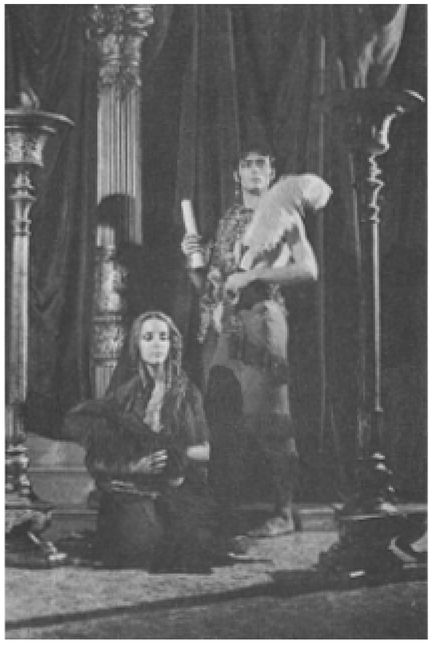
LEFT: Dancers performing in the Temple of the Sabaean Order in Chicago.
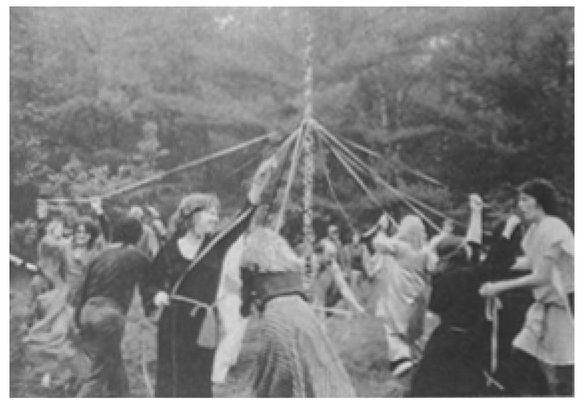
BELOW: A May Day celebration at the 1982 Rites of Spring Festival in Massachusetts.
(Photo by Selena Fox)
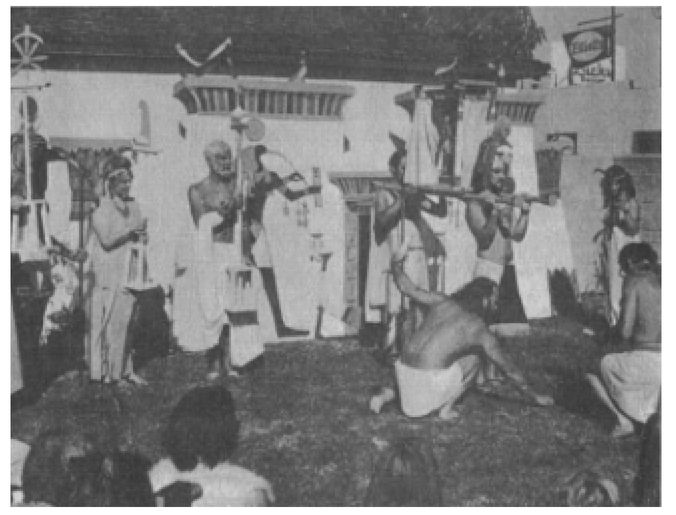
The Church of the Eternal Source stages its annual Egyptian New Year's party in Los Angeles.
(Photo by Church of the Eternal Source)

Selena Fox and friends gather herbs at Circle Sanctuary in Wisconsin.
(Photo courtesy of the National Film Board of Canada)
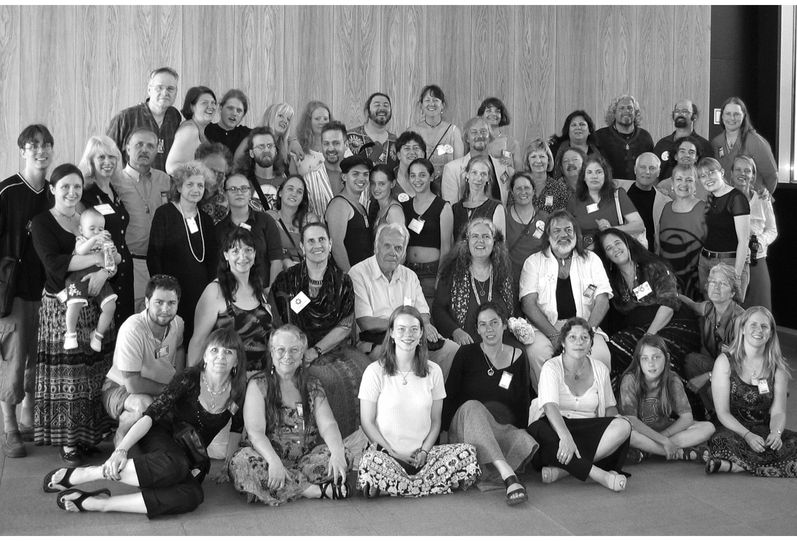
Pagans at the 2004 Parliament of the World's Religions in Barcelona, Spain. Photo taken at the Pagans at the Parliament reception sponsored by Circle Sanctuary.
(Photo courtesy of Circle Sanctuary)
7.
Magic and Ritual
The craft of the Craft is the craft of producing altered states of consciousness, and, traditionally, always has been.
âAIDAN KELLY
Â
Ritual is to the internal sciences what experiment is to the external sciences.
âTIMOTHY LEARY
1
1
Â
Magick is a science in which we never know what we're talking about, nor if what we are saying is true.
âTHE ABBEY OF THELEMA (MAGICAL ORDER)
2
2
Â
Â
“THE CANDLES, the incense, and the images are props,” the woman wrote to me. The spells, the chants, the dances are props. These things are not
magic.
The magic is the art (or science) of using the props. But to say this implies that magic and ritual have some purpose beyond the aimless activities of the ignorant, uneducated, and superstitious. Bonewits observes that “as intellectuals, we have been raised to have a kneejerk reaction to such terms as âmagic,' âthe occult,' âritualism,' âthe supernatural,' etc., so that we can only think about these subjects in the ways that we are supposed to.”
3
magic.
The magic is the art (or science) of using the props. But to say this implies that magic and ritual have some purpose beyond the aimless activities of the ignorant, uneducated, and superstitious. Bonewits observes that “as intellectuals, we have been raised to have a kneejerk reaction to such terms as âmagic,' âthe occult,' âritualism,' âthe supernatural,' etc., so that we can only think about these subjects in the ways that we are supposed to.”
3
I have found it impossible even to discuss these subjects with certain upper-middle-class intellectuals; they elicit an almost religious response. Those who uphold the secular religion of rational humanism put up more blocks to such discussion than adherents of any other ideology.
I am hoping that most readers will adopt, at least temporarily, a more open position: a position that assumes that most of what has been written about magic is nonsense and that the truth about psychic realities lies under a thick web of ignorance, passivity, and conditioning. Perhaps the best approach is to allow yourself to play with the idea of magic in the way that Robert Shea and Robert Anton Wilson in their book
Illuminatus
allowed themselves to play with the idea of Eris, the Goddess of Chaos, letting her lead them in some unexpected directions. According to Wilson, that's precisely how magic works.
Illuminatus
allowed themselves to play with the idea of Eris, the Goddess of Chaos, letting her lead them in some unexpected directions. According to Wilson, that's precisely how magic works.
The most advanced shamanic techniquesâsuch as Tibetan Tantra or Crowley's system in the Westâwork by alternating faith and skepticism until you get beyond the ordinary limits of both. With such systems, one learns how arbitrary are the reality-maps that can be coded into laryngeal grunts by hominids or visualized by a mammalian nervous system. We can't even visualize the size of the local galaxy except in special High states.
4
4
We have seen that most Witches and Neo-Pagans do not link “magic” with the “supernatural.” The best comment on this subject comes from Leo Martello, author of
Witchcraft: The Old Religion.
He wrote: “I make no claims as a witch to âsupernatural powers,' but I totally believe in the
super
powers that reside in the
natural.
”
5
Witchcraft: The Old Religion.
He wrote: “I make no claims as a witch to âsupernatural powers,' but I totally believe in the
super
powers that reside in the
natural.
”
5
Other books
Shadow of a Tiger by Michael Collins
The C Word (Just a Word Book 1) by Kerry Heavens
Assassins by Mukul Deva
The Westerfield Affair by Renee Rose
The Unsuspected by Charlotte Armstrong
In Dublin's Fair City by Rhys Bowen
The Five People You Meet in Heaven by Mitch Albom
Breaking Free by C.A. Mason
Kendra Kandlestar and the Shard From Greeve by Lee Edward Födi